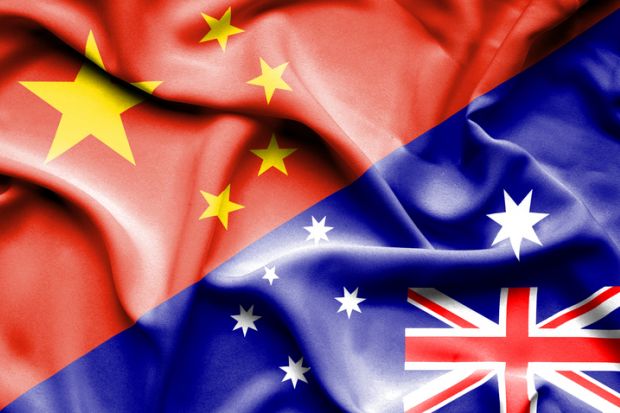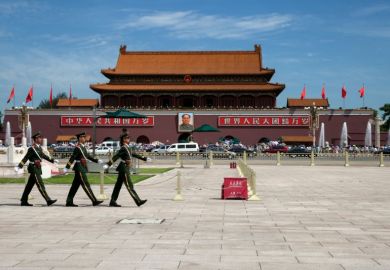The vice-chancellor of the Australian National University urged Australians to avoid the “flat-out wrong idea” that Chinese students are “all spies, or incapable of critical enquiry” as the government stepped up its warnings to them to respect freedom of speech.
Julie Bishop, Australia’s foreign minister, had earlier in the week “issued a blunt warning to Chinese university students affiliated with the Communist Party, urging them to respect freedom of speech in Australia”, ABC Online reported.
The warning followed a series of reports about Chinese Communist Party attempts to monitor or influence the activities of Chinese students in Australia, and to challenge the views of Chinese academics whose views do not align with Beijing’s.
“We want to ensure that everyone has the advantage of expressing their views whether they are at university or whether they are visitors,” Ms Bishop said.
“We don’t want to see freedom of speech curbed in any way involving foreign students or foreign academics.”
Her comments came after Frances Adamson, secretary of the Department of Foreign Affairs and Trade, had earlier in the month told international students at the University of Adelaide’s Confucius Institute that the “silencing of anyone in our society – from students to lecturers to politicians – is an affront to our values”.
Brian Schmidt, the ANU vice-chancellor, speaking at a meeting held by China Matters – a public policy initiative to promote nuanced discussion of China in Australia – subsequently said that “if you follow the news, you will have seen allegations of spying, monitoring by the embassy and other students, infiltration of our society or harassment of families at home”.
He added: “It is incumbent on us to recognise and address those challenges, and we are working in partnership with other universities and the Australian government on this important area.”
But Professor Schmidt also warned: “There is no upside to letting the security concerns about a small proportion of international students affect our attitude to the wider international student body, whether from China or anywhere else.
“What we absolutely must avoid is the flat-out wrong idea that Chinese students are all spies, or incapable of critical enquiry, or that they all think alike.”
He concluded of Australia-China relations: “Working cooperatively does not mean giving up on the diligence surrounding our national security, but it does mean creating a more connected, dynamic and, ultimately, peaceful world, which is in Australia’s and everyone’s interests.”
Register to continue
Why register?
- Registration is free and only takes a moment
- Once registered, you can read 3 articles a month
- Sign up for our newsletter
Subscribe
Or subscribe for unlimited access to:
- Unlimited access to news, views, insights & reviews
- Digital editions
- Digital access to THE’s university and college rankings analysis
Already registered or a current subscriber?









